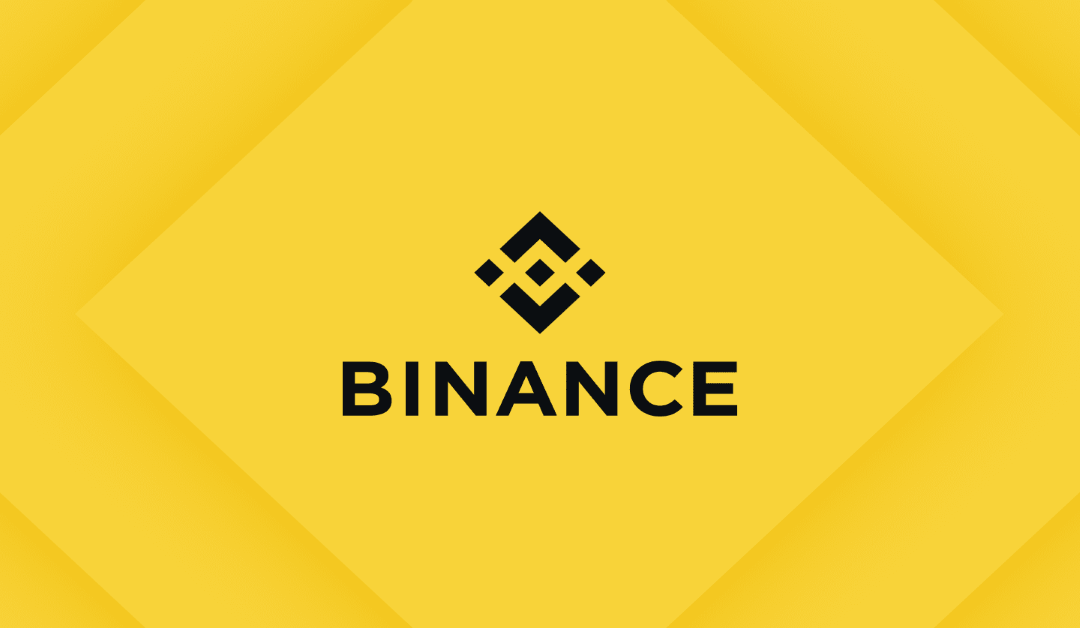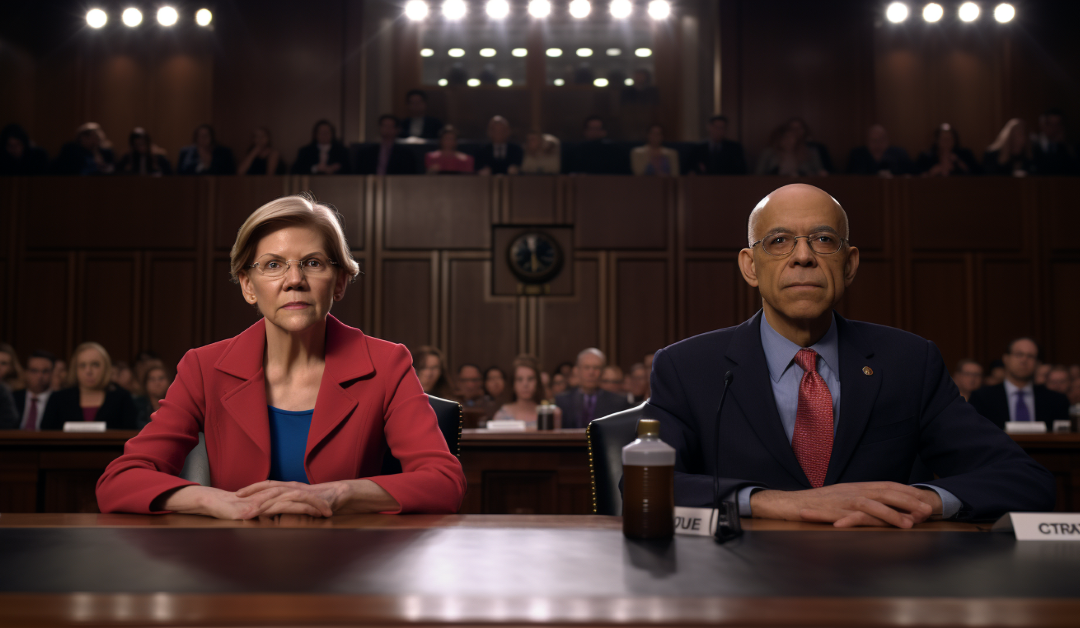
by Joseph Reagan | Aug 8, 2023 | Regulation
Key Points
- Binance has confirmed that it has become the first regulated crypto exchange in El Salvador.
- The development pushes El Salvador’s Bitcoin vision further, as investors will have a chance to trade more cryptocurrencies.
Binance has become the first regulated crypto exchange in El Salvador after securing a license from the country’s regulators in an effort that seeks to propel the country to more crypto adoption. This development pushes El Salvador’s Bitcoin “love story” forwards.
Binance is now the first regulated crypto exchange in El Salvador
An August 8th report from Binance confirms that the exchange is now the first regulated crypto exchange in El Salvador after securing both Bitcoin Services Provider License (BSP) from the Central Reserve Bank and the first non-provisional Digital Assets Services Provider License from the National Commission of Digital Assets.
Binance has secured this win in a series of other wins from countries warming up to the crypto industry. However, it still needs help from other regulators, like in the UK and the US. The UK FCA recently shut down one of its subsidiaries; however, the company said that it did not expect its services to be impacted as it was not serving UK customers in the first place.
In the US, the company’s Binance.US platform is under investigation and a court battle with the US SEC that terms it as a securities broker and alleges it mixes its funds with the international exchange, which puts US citizens’ investments at risk. However, neither of the allegations has been proven though it is expected the case might end up in a settlement between the exchange and the US SEC.
El Salvador, Bitcoin love story continues….
El Salvador has had one of the most interesting love affairs with Bitcoin adoption. It approved using Bitcoin as a legal tender ditching the US dollar in 2021. It then invested heavily in the coin and issued handouts to its citizens to incentivize its adoption.
The nation’s citizens cried foul when the systems did not function optimally. President Nayib Bukele was also criticized as his Bitcoin investments were losing value in the face of the 2022 crypto bear market. The World Bank and the IMF even criticized the decision to use Bitcoin as a legal tender, saying it would cut loans and other fundings, citing risky monetary policies.
However, El Salvador did not get shaken; it has managed to release its volcano bitcoin bonds which have had a massive market impact and stabilized its usage of Bitcoin as legal tender. The country also profits from its Bitcoin holdings.
As such Bitcoins’ “hottest romantic affair yet” continues via the approval of the first regulated crypto exchange in El Salvador.
Keep watching Fintech Express for updates on this and other Fintech-related developments.

by Samuel Mbaki | Aug 8, 2023 | Regulation
Key Points
- According to US laws, the US SEC is bound to give a decision regarding the approval process of an ETF 45 days after the initial filing. This week will see the end of those days regarding a group of Bitcoin spot ETFs filed with the regulator.
- Galaxy Digital CEO Mike Novogratz expects this week’s decision to be an announcement of an approval delay but to be approved in the next 4 to 6 months.
The clock is ticking for US SEC to make its stand publicly on Bitcoin Spot ETFs, as 45 days are since a series of Bitcoin Spot ETFs were filed with the regulator at the end of this week. Consequently, Galaxy Digital CEO Mike Novogratz thinks the most likely decision would be a delayed response, but markets might see an active Bitcoin Spot ETF in the next 4 to 6 months.
A step closer to the US SEC Bitcoin Spot ETF decision?
Bitcoin has taken international markets by storm prompting big asset managers like BlackRock to soften their hearts and warm up to the idea and innovation behind the coin. In June, BlackRock led a series of traditional finance institutions to file for Bitcoin spot ETFs.
This week will see 45 days that the US SEC has to respond to the filings end. As such, it is expected to issue an official statement regarding the filings. However, as seen before, the regulator always takes its time before making such decisions, given there is a large number of filings at the moment.
Both Ethereum and Bitcoin spot ETF filings from TradFi institutions now have a count of over 20. As such, the US SEC would likely choose to delay the decision to approve any of them at this point.
Consecutive approval in 2024?
ARK Invest’s CEO Cathie Woods has called on the US SEC to approve all Bitcoin spot ETFs consecutively to avoid giving any company a market advantage over the other, given that most TradFi competitors have filed for similar assets. Her remarks called on the US SEC to ensure that no companies get a competitive advantage to make the markets fairer, as approving these assets may open the door to further mainstream adoption.
While this is possible, it still needs more time to become a reality. Galaxy Digital CEO thinks it could take 4 to 6 months for the regulator to approve these assets despite its 45 days to respond per US securities law ending this week. That pushes the possible approval dates to 2024.
However, none of the above possibilities are guaranteed as no insider or official information from the regulator has been made public yet. Keep watching Fintech Express for updates on this story as soon as it happens.

by Joseph Reagan | Aug 4, 2023 | Regulation
Key Points
- Ilya Lichstein and Heather Morgan have pleaded guilty to being original hackers of the bitcoin exchange Bitfinex in 2016, which resulted in a loss of $4.5 billion.
- The guilty plea by Ilya Lichstein and Heather Morgan came in Washington DC, which also included ties to money laundering and fraud charges.
Ilya Lichstein and Heather Morgan pleaded guilty to hacking the Bitfinex bitcoin exchange in 2016, shedding light on who was involved in the heist after years of investigations. Now, the couple faces other charges like money laundering and conspiring to defraud the united states government.
Ilya Lichstein and Heather Morgan plead guilty in a multibillion hack case
Ilya Lichstein and Heather Morgan have been under investigation in the U.S. concerning Bitfinex hacking for years. Now, Ilya Lichstein has pleaded guilty in a Washington DC federal court to being the original hacker of the exchange leading to a theft that saw the exchange suffer a $4.5 billion loss.
At the same time, his wife, Heather Rhiannon Morgan, stepped up from the audience to enter her guilty plea on two charges, money laundering and conspiring to defraud the U.S. government. Now, Lichstein faces a maximum jail term of 20 years for money laundering though it is yet to be determined if he will face more charges.
His wife, Heather Morgan, has been freed on a $3 million bond since her arrest, which marks over one year since the two last saw each other. The two had been arrested in February 2022 in a process that resulted in the DOJ seizing more than 94,000 bitcoin worth over $3.6 billion. The seizure was the largest ever done by the US DOJ.
Now, the DoJ has also made another seizure worth approximately $ 475 million, per a statement from the authorities. Bitfinex also followed suit and released a statement saying it has engaged in unprecedented efforts since the hack to refund its customers fully.
“Bitfinex also diligently worked with the U.S. Department of Justice to identify the perpetrators of the hack, recover the stolen bitcoin, and bring the hackers to justice,” the company said. “After seven years, those efforts have come to fruition.”
Keep watching Fintech Express for more updates on this and other fintech-related developments.

by Samuel Mbaki | Jul 28, 2023 | Regulation
Key Points
- UK and Singapore to continue working together on developing global crypto regulatory standards
- MAS has asked the UK to consider raising digital currency spending caps
The UK and Singapore have led in showcasing the possibility of global crypto regulatory standards as they join hands to streamline the industry. The Monetary Authority of Singapore published an article on July 27 detailing their joint efforts and goals with the UK in making the industry safer for their citizens.
Countries keep pushing for global crypto regulatory standards
For quite some time now, different leaders have spoken out on the need for international cooperation in crypto regulation. India’s Finance Minister has been particularly vocal in calling for global crypto regulatory standards to be a thing.
Now, the regulators in Singapore and the UK have agreed to contribute to each other’s efforts in developing global crypto regulatory standards as part of international; standard-setting bodies such as IOSCO and others.
The Monetary Authority of Singapore, MAS, has published an article detailing how the two nations intend to extend their help to each other in the process detailing that they will both welcome suggestions from each other. An excerpt from the article reads.
“ The UK and Singapore agreed to contribute to efforts to develop global regulatory standards for crypto and digital assets as part of international standard setting bodies such as IOSCO, and working groups under the Financial Stability Board (FSB), and welcomed the FSB recommendations on crypto-assets including stablecoins.”
The article also indicated that the two countries aim to “continue discussions and share insights and experiences” in the crypto regulation process. The MAS added that the UK agreed to consider “future collaboration” in opportunities within the “private-public sector collaborative initiative to test the potential and feasibility of asset tokenisation.”
Additionally, the MAS said that the UK welcomed its review of e-wallet caps, which includes the need to increment the relevant limits imposed on e-wallets. The UK had communicated in February this year that Brotons would be limited to spending 20,000 digital pounds if the country was to introduce a digital currency. This move had been heavily criticized.
Now, the MAS has convinced the country to consider raising such caps to give Britons more freedom over their monies. Keep watching Fintech Express for more updates on this and other fintech-related developments.

by Baraza Dan | Jul 26, 2023 | Regulation
The mighty Gary Gensler, a devoted ombudsman, or crypto’s number-one public enemy?
Originally a wall street regulator, Gary Gensler’s evolution from a stalwart ombudsman and crypto professor to crypto’s antagonist has been paradoxical. His actions sparked a debate in the crypto realm, with many asking for his resignation. The big question is, should Gary Gensler resign?
This article sheds light on Gensler’s conflict with crypto and why I think he is not the right man for the job.
Meet Chairman Gary Gensler: A legacy of oversight
Gary Gensler is the presiding Chairman of the US Securities and Exchange Commission, an agency waging war against crypto. The SEC boss, a staunch ombudsman, was nominated by President Joe Biden in Feb 2021. Gensler officially took office on April 17, 2021, after Senate approval.
Gensler’s mighty reputation stems from past roles at CFTC, Maryland Financial Consumer Protection Commission (MFCPC) and several others. At CFTC, Gensler served as Chairman between 2009 and 2014, appointed by former distinguished president Barack Obama.
His role at the MFCPC started in 2017 and ended when the body was disbanded in 2019. Before that, the glorified ombudsman served other roles, including as undersecretary for Treasury for Domestic Finance. Gary Gensler has also given crypto-related classes at MIT in recent years.
Gensler’s decorated CV gave him his current job. However, the story has been quite different since taking over the SEC.
Gensler: A tainted crypto CV
Since assuming office, Gensler has built a reputation as a crypto villain. In Sept 2021, while addressing the Senate Banking Committee, Gary Gensler noted that the SEC is working overtime to develop a crypto regulatory framework. The SEC is lacking adequate regulations for the crypto realm, Gensler highlighted.
The Senate banking committee backed Gensler, even pushing for accelerating the timeline. Sen. Pat Toomey of Pennsylvania mentioned the need for clarity and transparency with the regulations before taking any enforcement actions. During this hearing, Gensler first referred to crypto as the “wild west.
This crypto bully called for registering cryptocurrency exchanges, like traditional exchanges. Moreover, Gensler shared his belief that stablecoins cause a conflict of interest leading to market integrity questions.
After FTX plummeted from glory last November, Gensler got the charge and backing to go after crypto projects. In only the first half of 2023, the SEC filed suits against Kraken, Coinbase and Binance.
Ripple’s win: A setback for Gensler’s crypto crusade
Crypto enthusiasts are celebrating Ripple’s triumph against the SEC. While Judge Torres’s decision declaring XRP ‘not security’ continues to cause joy, Gensler’s reaction suggests a continued onslaught on crypto projects. While expressing disappointment, Gensler refused to take the loss and vowed to continue regulating crypto.
The Ripple network win gives new ammunition to crypto exchanges facing the SEC with charges of illegally ‘selling securities.’ For instance, Coinbase attorneys can use Judge Torres’ logic to argue that since the tokens are traded between blind parties, they are ‘NOT’ securities.
Hence, Gensler is likely set up for more losses in the coming years. Gensler-SEC loss of the Ripple case debunked the regulator’s biggest lie, ‘all cryptocurrencies except Bitcoin are securities.’
Tom Emma: ‘Gensler, An Incompetent Cop?’
The crypto antagonist found himself in the lion’s den when he faced the House Financial Services Committee in Feb. When asked by McHenry whether ETH is security, Gensler dodged the question, failing to back his original sentiment that all cryptocurrencies except Bitcoin are securities. This massively frustrated the legislators.
Rep Warren Davinson highlighted possible collusion between Gensler and Sen. Elizabeth Warren to push the anti-crypto agenda. The Senator lists examples of power abuse by Gensler. As a consequence, Warren called for the firing of the SEC boss.
Frustrated by Gensler’s dodging of questions, Rep Tom Emma took his minutes to scold the regulator. Tom Emma even mentioned that Gensler’s approach to cryptocurrency drives the industry out of the US. “Existing SEC rules make no sense for Blockchain companies,” Tom mentioned.
In a bold statement, Tom called Gensler an “incompetent cop on the beat” who puts “everyday Americans in harm’s way and [pushes] American firms into the hands of the Chinese Communist Party.”
Behind the scenes: Gensler and Binance
In a new twist, Binance attorneys submitted to the SEC that Gensler has a personal history with Binance. Based on the attorneys, the decorated ombudsman applied for an advisory role at Binance as the uncertainty of crypto regulation continued.
Gensler, Binance CEO Zhao, and several other Binance employees were in conversation about a position. All this happened before Gensler was appointed for his SEC role. The attorneys argue that a conflict of interest resides with Gary Gensler’s involvement in this case.
Crypto regulation: Led by a non-investor?
Then comes the question of crypto ownership. Rep Bryan Steil strongly asked Gensler whether he owned any crypto. The answer is NO! The Rep pressed further, asking whether Gensler ever owned any crypto in the past, even during his MIT professor days. Again, Gensler said NO.
- Why is crypto regulation reliant on a person who never owned it?
- How can Gensler truly appreciate crypto if he does not understand the fun, joy, and pain of profiting and losing?
The lack of answers to those two questions gives an entire basis for why Gensler’s crypto crusade is flawed. It is simply a tale of power abuse.
My Take: Gensler should RESIGN!
There’s not much to say than Gensler should resign! His abuse of power, going after crypto projects even with no clear legal foundation, is evidence enough of his failure at the SEC. His desire to frustrate crypto projects while not attempting to create a legal framework aims to achieve just one thing, run crypto projects out of the US.
An SEC head should be partial—a leader who will focus on collaborating with crypto stakeholders to develop proper regulations. Gary Gensler is evidently NOT that leader.

by Samuel Mbaki | Jul 22, 2023 | Regulation
Key Points
- US SEC has expressed discomfort with the recent XRP rule, saying that the Judge behind it was incorrect.
- The landmarking ruling stirred the crypto market as analysts and investors called for counter lawsuits against SEC’s crypto onslaught and hinted at primary markets being termed non-securities-proven markets.
Per a recent statement, the US SEC has hinted that it is considering various avenues for the decision made in a Ripple case ruling that claims the native coin, XRP, is not a security.
The Judge behind the Ripple XRP ruling wasn’t correct- US SEC
In a statement regarding Ripple’s partial win in a case against the US SEC, the US SEC said it is “considering the various available avenues for further review.” It has suggested that it is exploring options to appeal the ruling that claims the sale of XRP to retail traders is not a security.
The regulator claimed that the ruling goes against the Howey Test, the fundamental set of rules determining if an asset falls under the category of securities. Notably, the US SEC had commended the Judge for acknowledging Howey Test and ruling that the sale of US SEC to secondary markets was classified as a security.
At the time, the US SEC claimed that the Judge was fair to rule out Ripple’s makeshift tests to determine whether an asset was a security and stood by the existing tests. The US SEC made these comments in a lawsuit against Terraform Labs, expressing many issues with the Court’s decision in the Ripple XRP case.
“Contrary to Defendants’ assertions, much of the Ripple ruling supports the SEC’s claims in this case and rejects arguments Defendants have raised here. However, with respect to the Programmatic and other sales, the SEC respectfully avers that Ripple conflicts with and adds baseless requirements to Howey and its progeny,” the SEC stated
The regulator added,
“Respectfully, those portions of Ripple were wrongly decided, and this Court should not follow them. SEC staff is considering the various available avenues for further review and intends to recommend that the SEC seek such review.”
These comments come days after the SEC chair Garyy Gensler expressed dissatisfaction with the ruling. In an interview with Yahoo Finance on July 17, he expressed that the regulator was pleased with the partial win that secondary markets encompass securities offering but greatly disappointed with a ruling that Primary markets are excluded.
He expressed that they are looking into that and will take further steps if necessary. Keep watching Fintech Express for updates on regulation and other fintech-related developments.






